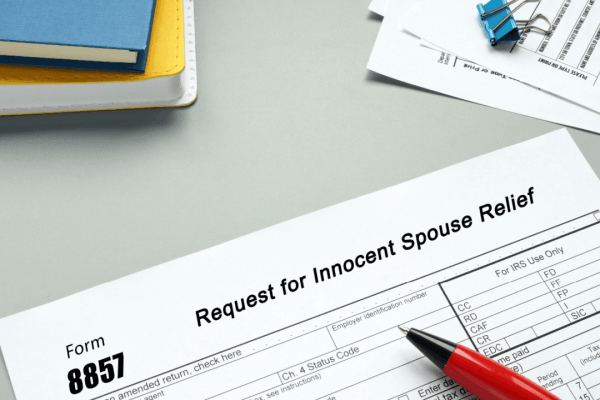
IRS Gov Debt Forgiveness Form: What It Is and How to File It
IRS Gov Debt Forgiveness Form: Understanding IRS Form 982
The IRS gov debt forgiveness form, officially known as IRS Form 982, allows eligible taxpayers to reduce or eliminate tax liability on canceled debt. When you settle a debt for less than the amount owed, the IRS may treat the forgiven portion as taxable income. However, if you meet certain criteria, such as filing for bankruptcy or being insolvent, you may be able to exclude that amount from your taxes by filing this form correctly.
What Is the IRS Gov Debt Forgiveness Form?
IRS Form 982 is used to inform the IRS that you qualify to exclude certain forgiven debts from your taxable income.
Official Name: IRS Form 982
The full name is “Reduction of Tax Attributes Due to Discharge of Indebtedness (and Section 1082 Basis Adjustment).” While the title is technical, its primary purpose is to help taxpayers avoid paying taxes on discharged or forgiven debt.
Purpose of the Form: Canceling Taxable Debt
Forgiven debt is generally taxable unless you qualify for an exclusion. IRS Form 982 lets you officially claim that exclusion so the IRS doesn’t include the canceled debt as income on your return.
When You Might Receive a 1099-C
If your lender cancels a debt of $600 or more, they are required to send you Form 1099-C, showing the amount of debt forgiven. The IRS receives this form too, so it’s important you respond by explaining why you shouldn’t owe tax on it—through Form 982.
Who Qualifies to Use the IRS Gov Debt Forgiveness Form?
You must meet one of the IRS’s listed conditions to be eligible to use Form 982.
Bankruptcy Discharges
If your debt was discharged in bankruptcy, you are automatically excluded from taxation on that forgiven debt. You must file Form 982 to inform the IRS and avoid the tax bill. To explore this in more depth, visit BankruptcyAttorneys.net.
Insolvency Situations
If your total debts were greater than your total assets at the time the debt was forgiven, you may be considered insolvent. In this case, you can exclude the forgiven portion up to the amount you were insolvent.
Qualified Principal Residence Indebtedness
Certain mortgage debts forgiven due to foreclosure or short sale may be excluded under special IRS provisions, particularly if the debt was tied to your primary residence.
Certain Student Loan Forgiveness Conditions
In some cases, student loan forgiveness is excluded from taxable income—especially for Public Service Loan Forgiveness or loans forgiven due to death or disability.
How to Fill Out IRS Form 982 Correctly
Filing Form 982 can be straightforward if you prepare carefully.
Required Documentation
Gather the following:
- Form 1099-C from your lender
- A list of assets and liabilities at the time of cancellation (for insolvency claims)
- Bankruptcy discharge documentation, if applicable
If you’re unsure how to calculate insolvency or determine what applies, Legal Brand Marketing connects taxpayers with licensed professionals who specialize in debt-related tax issues.
Key Sections to Complete
- Line 1a: Check the applicable reason (e.g., bankruptcy, insolvency)
- Line 2: Enter the amount of discharged debt
- Part II: Used for reducing tax attributes, typically required in bankruptcy cases
Common Errors to Avoid
- Not including Form 982 with your tax return
- Failing to check the right exclusion box
- Miscalculating insolvency without clear asset/liability evidence
When and Where to File the IRS Gov Debt Forgiveness Form
Filing Form 982 correctly and on time is essential to avoiding a surprise IRS bill.
Filing With Your Tax Return
Always attach Form 982 to the same year’s tax return that includes the canceled debt reported on Form 1099-C.
Where to Send the Form if Mailing
If you’re mailing your return, send Form 982 along with your Form 1040 to the IRS address listed for your region.
E-Filing vs. Paper Filing Considerations
You can e-file Form 982 using tax software that supports it or work with a tax professional. Make sure your software prompts for Form 982 when importing a 1099-C. If you need help understanding your tax debt options or ensuring proper filing, consider speaking with a trusted tax resolution expert.
The IRS Gov Debt Forgiveness Form Can Help You Avoid Unnecessary Taxes
Many taxpayers are surprised to find out that forgiven debt can lead to a tax bill. Fortunately, the IRS gov debt forgiveness form (Form 982) exists to prevent that from happening—if you qualify. Whether due to bankruptcy, insolvency, or specific loan forgiveness conditions, Form 982 is your key to protecting yourself from being taxed on canceled debt that you were never able to repay.
Need Help With the IRS Gov Debt Forgiveness Form? Get Expert Support Today
If you’ve received a Form 1099-C or recently had debt forgiven, don’t guess your way through Form 982. A licensed tax professional can help determine your eligibility, gather necessary documentation, and file the IRS gov debt forgiveness form correctly. Get expert help now and avoid costly IRS mistakes later.
Frequently Asked Questions
1. What is the IRS gov debt forgiveness form used for?
It’s used to exclude forgiven or canceled debt from your taxable income under specific IRS-approved conditions.
2. How do I know if I qualify for debt forgiveness?
You may qualify if your debt was canceled through bankruptcy, you were insolvent at the time, or the forgiven debt was on your primary residence.
3. Do I need to file Form 982 with my tax return?
Yes. You must file it with the same tax return year that the debt was forgiven, along with Form 1099-C.
4. What documents do I need to submit with Form 982?
You’ll need Form 1099-C, evidence of bankruptcy or insolvency, and a breakdown of your assets and debts.
5. Can I e-file the IRS gov debt forgiveness form?
Yes, as long as your tax software supports it, or if you’re working with a tax professional who can include it in your e-filed return.
Key Takeaways
- IRS Form 982 helps exclude canceled debt from taxable income.
- You must file it if your debt was forgiven due to insolvency or bankruptcy.
- Documentation such as Form 1099-C and asset/liability records are required.
- Form 982 must be submitted with your tax return in the year the debt was canceled.
- A tax expert can help ensure accuracy and maximize your tax relief.
Free Tax Case Review
If you are struggling with tax debt or have received a letter from the IRS complete the form below.Advertising. This site is a marketing service and does not provide legal or tax advice. Submitting information does not create an attorney-client, tax professional-client, or any other advisory relationship. Results are not guaranteed. A list of participating attorneys, tax firms, and tax providers is available here.
IRS Audit
You received an audit notice from the IRS
Tax Debt Relief
You owe the IRS money and are looking for relief options
Wage Garnishment
The IRS is taking part of your wages to pay off your debt
Tax Lien
The IRS put a legal claim on your property
IRS Property Seizure
The IRS is going to take your property to pay down or pay off your tax debt
Penalty Abatement
You want to request to remove or reduce penalties assessed by IRS
Innocent Spouse Relief
Relief from joint tax debt caused by your spouse or former spouse
Tax Debt FAQ
Common facts, questions and answers about tax debt and tax debt reilef
Tax Debt Lawyer
A tax debt lawyer can help you with your tax debt problems
Recent Posts
- Who Is Eligible for Innocent Spouse Relief and How Does It Work?
- What is an Effective Tax Strategy for Married Couples
- What are the Proofs of Innocent Spouse Relief?
- What Form Do You Use for an Innocent Spouse? | Complete IRS Filing Guide
- What Are the Four Types of Innocent Spouse Relief? | Your Complete Guide



